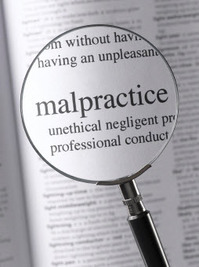CHICAGO, IL – Anesthesia plays a crucial role in modern medical procedures, ensuring patient comfort and safety during surgeries or other invasive treatments. However, like any medical intervention, anesthesia administration is not without risks. Anesthesia errors can occur, leading to serious complications or even fatalities. When such errors arise, it is important to understand who can be held liable for the consequences. In this blog post, we will explore the various parties who may bear responsibility for anesthesia errors and shed light on the complex issue of liability.
- Anesthesiologists
Anesthesiologists are highly trained medical professionals responsible for administering anesthesia and closely monitoring patients during procedures. As the primary caregivers in anesthesia management, they bear significant responsibility for ensuring patient safety. Anesthesiologists can be held liable if an error occurs due to their negligence, such as incorrect dosage, failure to monitor vital signs or improper intubation techniques. However, it is important to note that not all adverse outcomes are indicative of malpractice, as the field of anesthesia inherently carries some degree of risk. - Other Medical Personnel
While anesthesiologists are typically the main providers of anesthesia care, other medical personnel involved in the procedure may also share liability. Nurse anesthetists, under the supervision of anesthesiologists, may be accountable for errors they make during the administration or monitoring of anesthesia. Surgeons or other healthcare professionals present in the operating room may also be held responsible if their actions contribute to an anesthesia error or if they fail to communicate vital information to the anesthesiologist. - Medical Institutions
Hospitals and medical institutions can be held liable for anesthesia errors under certain circumstances. If the error is due to a systemic issue, such as inadequate staffing, insufficient training or faulty equipment, the institution may be held accountable. Furthermore, if the hospital fails to properly credential or supervise its medical staff, leading to an incompetent anesthesiologist or nurse anesthetist, the institution can also be deemed liable for the resulting errors. - Pharmaceutical Companies and Equipment Manufacturers
In some cases, anesthesia errors may be attributed to faulty medications or defective equipment. If a drug manufacturer fails to provide proper warnings or instructions for the use of an anesthetic drug, resulting in harm to the patient, they may be held liable. Similarly, if an anesthesia-related medical device malfunctions due to a manufacturing defect, the equipment manufacturer may share responsibility for any resulting errors. - Contributory Negligence
It is worth mentioning that liability for anesthesia errors may also involve contributory negligence on the part of the patient. If the patient fails to disclose relevant medical information, such as allergies or pre-existing conditions, that could impact the administration of anesthesia, their actions may affect the allocation of liability. However, it is the responsibility of medical professionals to obtain and review the patient’s medical history to minimize the risk of errors.
Determining liability for anesthesia errors is a complex process that requires a thorough examination of the circumstances surrounding the case. Anesthesiologists, other medical personnel, medical institutions, pharmaceutical companies, and equipment manufacturers may all be held accountable, depending on the specifics of the error and the contributing factors. If you or a loved one has suffered harm due to an anesthesia error, it is essential to consult with an experienced medical malpractice attorney who can assess the case and guide you through the legal process. The skilled medical malpractice lawyers at the Dinizulu Law Group are here to help you! Call us at (312) 384-1920 now for a free consultation.



